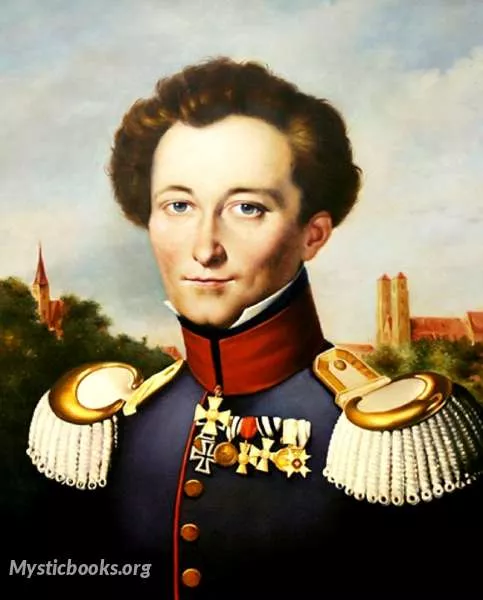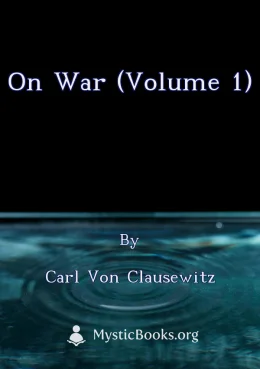
Timeline
Title
Country/Nationality
Carl von Clausewitz
Clausewitz was a Prussian general and military theorist who stressed the "moral" (meaning, in modern terms, psychological) and political aspects of war. His most notable work, Vom Kriege (On War), was unfinished at his death.
Clausewitz was a realist in many different senses and, while in some respects a romantic, also drew heavily on the rationalist ideas of the European Enlightenment.
Clausewitz's thinking is often described as Hegelian because of his dialectical method; but, although he was probably personally acquainted with Hegel, there remains debate as to whether or not Clausewitz was in fact influenced by him. He stressed the dialectical interaction of diverse factors, noting how unexpected developments unfolding under the "fog of war" (i.e., in the face of incomplete, dubious, and often completely erroneous information and high levels of fear, doubt, and excitement) call for rapid decisions by alert commanders. He saw history as a vital check on erudite abstractions that did not accord with experience. In contrast to the early work of Antoine-Henri Jomini, he argued that war could not be quantified or reduced to mapwork, geometry, and graphs. Clausewitz had many aphorisms, of which the most famous is "War is the continuation of politics by other means."
Clausewitz was born on 1 June 1780 in Burg bei Magdeburg in the Prussian Duchy of Magdeburg as the fourth and youngest son of a family that made claims to a noble status which Carl accepted.
Clausewitz served in the Rhine Campaigns (1793–1794) including the Siege of Mainz, when the Prussian army invaded France during the French Revolution, and fought in the Napoleonic Wars from 1806 to 1815.
On 10 December 1810 he married the socially prominent Countess Marie von Brühl, whom he had first met in 1803. She was a member of the noble German von Brühl family originating in Thuringia.
In 1815 the Russian-German Legion became integrated into the Prussian Army and Clausewitz re-entered Prussian service as a colonel. He was soon appointed chief-of-staff of Johann von Thielmann's III Corps. In that capacity he served at the Battle of Ligny and the Battle of Wavre during the Waterloo Campaign in 1815. An army led personally by Napoleon defeated the Prussians at Ligny (south of Mont-Saint-Jean and the village of Waterloo) on 16 June 1815, but they withdrew in good order. Napoleon's failure to destroy the Prussian forces led to his defeat a few days later at the Battle of Waterloo (18 June 1815), when the Prussian forces arrived on his right flank late in the afternoon to support the Anglo-Dutch-Belgian forces pressing his front. Napoleon had convinced his troops that the field grey uniforms were those of Marshal Grouchy's grenadiers. Clausewitz's unit fought heavily outnumbered at Wavre (18–19 June 1815), preventing large reinforcements from reaching Napoleon at Waterloo. After the war, Clausewitz served as the director of the Kriegsakademie, where he served until 1830. In that year he returned to active duty with the army. Soon afterward, the outbreak of several revolutions around Europe and a crisis in Poland appeared to presage another major European war. Clausewitz was appointed chief of staff of the only army Prussia was able to mobilise in this emergency, which was sent to the Polish border. Its commander, Gneisenau, died of cholera (August 1831), and Clausewitz took command of the Prussian army's efforts to construct a cordon sanitaire to contain the great cholera outbreak (the first time cholera had appeared in modern heartland Europe, causing a continent-wide panic). Clausewitz himself died of the same disease shortly afterwards, on 17 November 1831.
Books by Carl von Clausewitz

On War (Volume One)
Vom Kriege written mostly after the Napoleonic wars, between 1816 and 1830, and published posthumously by his wife Marie von Brühl in 1832. It has been translated into English several times as On War. On War is an unfinished work. Clausewitz had set...

On War (Volume Two and Three)
Vom Kriege written mostly after the Napoleonic wars, between 1816 and 1830, and published posthumously by his wife Marie von Brühl in 1832. It has been translated into English several times as On War. On War is an unfinished work. Clausewitz had set...

On War (Volume 1)
Carl von Clausewitz's *On War* is a seminal work on military strategy, written by a Prussian military theorist and officer who served in the Napoleonic Wars. The book explores the nature of war as a complex and multifaceted phenomenon, examining its...

On War (Volumes 2 and 3)
On War, specifically Volumes 2 and 3, delve deeper into Carl von Clausewitz's comprehensive analysis of warfare. It examines the relationship between war and politics, exploring themes of chance, friction, and the intangible factors that influence mi...